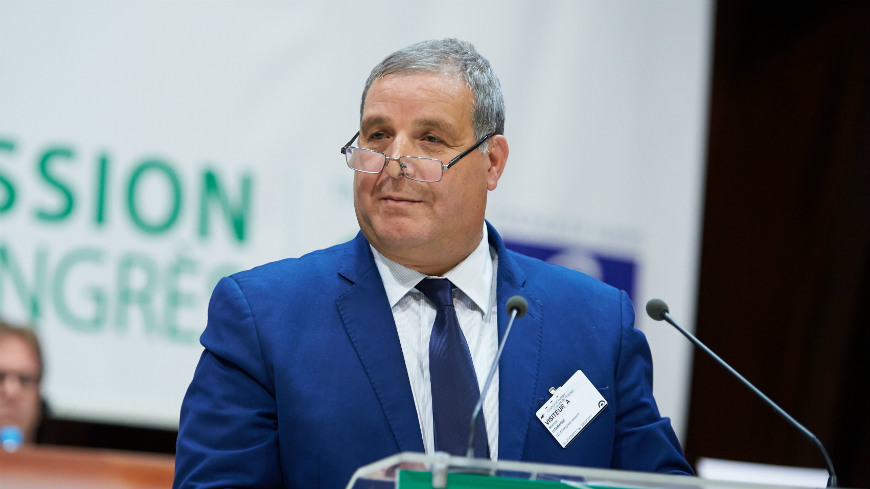“With its new Constitution of 27 January 2014, Tunisia has become a decentralised Republic, and decentralisation is at the heart of our debates in Tunisia today,” underscored Mokhtar HAMMAMI, Director General of Local Authorities at the Tunisian Ministry of Local Affairs and the Environment, speaking at the Congress Session in Strasbourg on 28 March 2017.
Addressing the Congress on the occasion of a visit organised for a delegation of Tunisian representatives in the framework of the South-Med Partnership, he presented the Tunisian reforms in the field of local democracy, stressing that “Article 14 of the Constitution sets forth our commitment to strengthen decentralisation and implement it across our territory in the framework of the state’s unity”. Mr HAMMAMI highlighted in this regard the relations between the Congress and Tunisia dating back to 2014, when the Congress contributed to the elaboration of the new Tunisian Constitution, in particular its Title VII dedicated to local self-government.
The decentralisation process triggered by the Constitution was “facing a number of legislative and financial administrative hurdles linked to the difficult political, economic and social situation”, stressed the Director General, adding that the current reforms aimed to improve the financial situation of Tunisian local authorities, in particular with “a detailed programme of measures to strengthen their legal autonomy.” At the same time, the Tunisian electoral law for forthcoming local elections required gender parity, whereby half of council presidents, vice-presidents and councillors would thus be women, he pointed out.
Mr HAMMAMI also outlined a multi-year plan for decentralisation in Tunisia, inspired by the experience of the 47 European countries shared through many exchanges with experts and laying the basis for a long-term vision of building local democracy in the country. “Tunisia is extending its hand to all of Europe,” concluded the Director General.
The South-Med Partnership programme is part of the Council of Europe policy towards neighbouring regions. It was adopted by the Congress Bureau during its meeting on 10 February 2017 and is designed as a framework for the co-operation projects implemented in relevant countries, in particular in Morocco and Tunisia.
INTERVIEW MEDIABOX




